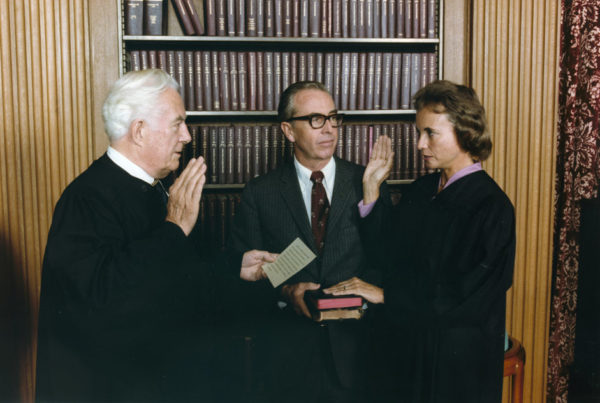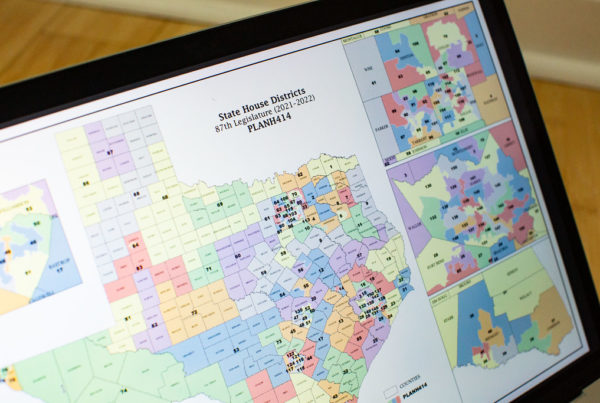Companies often weigh in on important matters of politics and society – they have placed full page newspaper ads celebrating diversity and social justice, threatened boycotts of states considering anti-transgender legislation and more. So why have so few well-known brands spoken out about Texas’ new abortion law, SB 8? It’s a measure that prevents abortion after about six weeks of pregnancy, or when a fetal heartbeat is detected, and allows individuals to sue anyone who provides assistance to someone seeking an abortion beyond that time limit.
Emmy Liederman writes for ADWEEK that Texas’ new abortion law is a call to action for brands and ad agencies.
Liederman says a few companies have announced support for Texas employees, or taken other actions that indicate their opposition to SB 8. But so far, most ad agencies and corporate brands haven’t been pressured by consumers or by other corporate action to take a position on the Texas abortion law.
Listen to the interview above or read the transcript below to learn more about why Texas’ abortion law hasn’t galvanized large-scale corporate response.
This transcript has been edited lightly for clarity:
Texas Standard: Have any companies responded to the passage of SB 8?
Emmy Liederman: Hey Jane, which is an online abortion clinic, teamed up with a variety of other health care brands to take out an ad in The New York Times. And this ad redirects readers to access accessisfreedom.com, where they’re invited to help expand abortion access in Texas by donating to some of these nonprofit organizations and spreading the word on social media.
I know you reached out to a number of ad agencies to hear their thinking on this [and] didn’t get calls back. What’s going on?
Yeah, I was pretty surprised, especially because I reached out to a lot of these big agencies that have a presence in Texas. And I didn’t hear them comment for our story. A lot of them would email me back saying, ‘We’re hurting right now and we don’t know exactly what we want to say.’ But truly I don’t understand the rationale behind that, because you would think that if people in the agency are hurting, they would want to make a statement to tell people how exactly they are feeling. So I think when it comes to these social justice moments, a lot of agencies and brands just wait to see how the rest of the world reacts until they hop on the bandwagon and feel like they’re forced to.
Do you think there’s a certain kind of fear, especially given Texas politics and the size of the Texas population?
Yes, I definitely think that virtue signaling and “woke washing” is an issue that brands and agencies think about when they’re crafting the right messaging. But honestly, if you, at your core, have good intentions when crafting a campaign and you’re just honest about your intentions, I think that that comes through in the creative and that comes through in the work that you’re doing. This ad in The New York Times is a perfect example. It’s nothing flashy about the brands, doesn’t have any sort of tie to the products that they’re selling. It’s just a message of ‘thank you for your resilience and here’s how you can donate.’
Salesforce announcing that it would fully back Texas-based employees that want to exit the state – these things can be taken out of context if the brands are using these decisions in a way that’s self-serving, but just the actions themselves are necessary. It shouldn’t be news that these brands are supporting their employees because that’s something that we should expect from all companies.
What does the research say about whether consumers want brands and agencies to stake a claim or plant their flag when it comes to issues that sometimes are loosely described as controversial?
When society doesn’t see change coming from the people, it’s leaning into corporations and leaning into these big brands to speak out. And the data has consistently suggested that brands and corporations should have a voice and that’s what their consumers want. And I’ve spoken to a lot of people in the industry who say not knowing how you should react to a situation is just a reflection of not understanding your consumer base. So the more you understand your consumer base and your employees and the people that you touch, the more likely it is that you will have a set call to action every time there is a heated social moment.
According to one of the experts you spoke with, companies often forget to simply ask female colleagues what they need and what they want from the company. Why?
It’s the same reason that during the height of the Black Lives Matter movement, a lot of companies were putting out this messaging without actually talking to their employees about the support that they needed. A lot of times, employees that are in positions of power or CEOs or executives, think that they have all the answers and they don’t think to look internally at the way that people are hurting and actually just listen. And I think that women in society are constantly being interrupted, told how to feel about different social movements. And a lot of times the answer to helping their pain is to just take a step back and listen to them and ask them what they need and how they can be supported by their employer.













